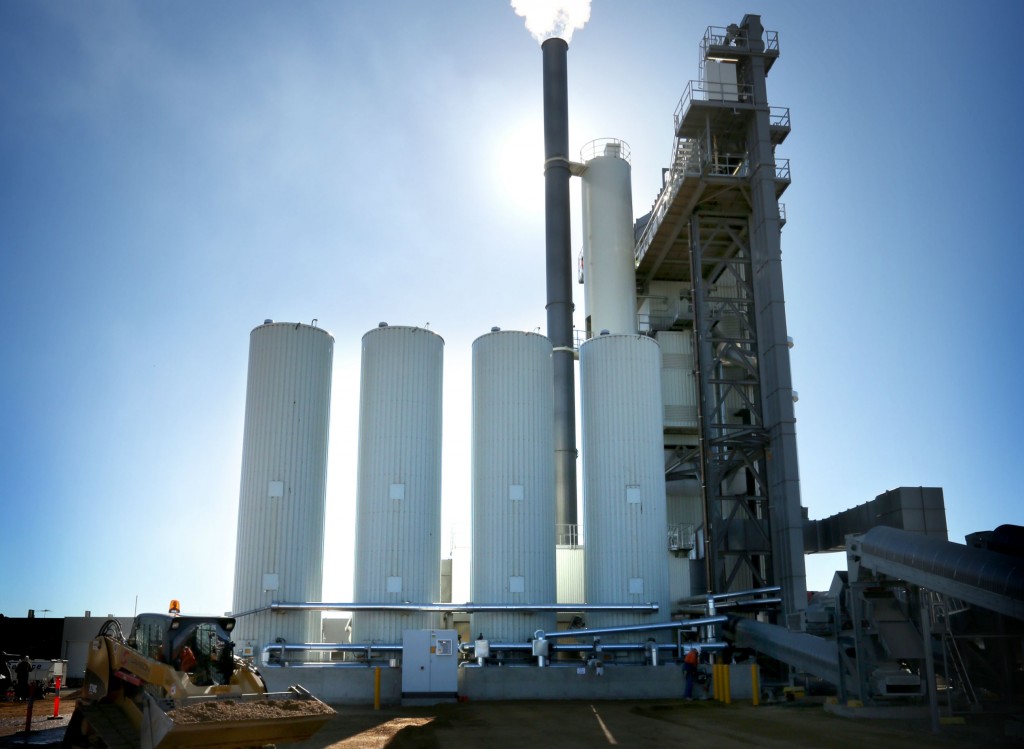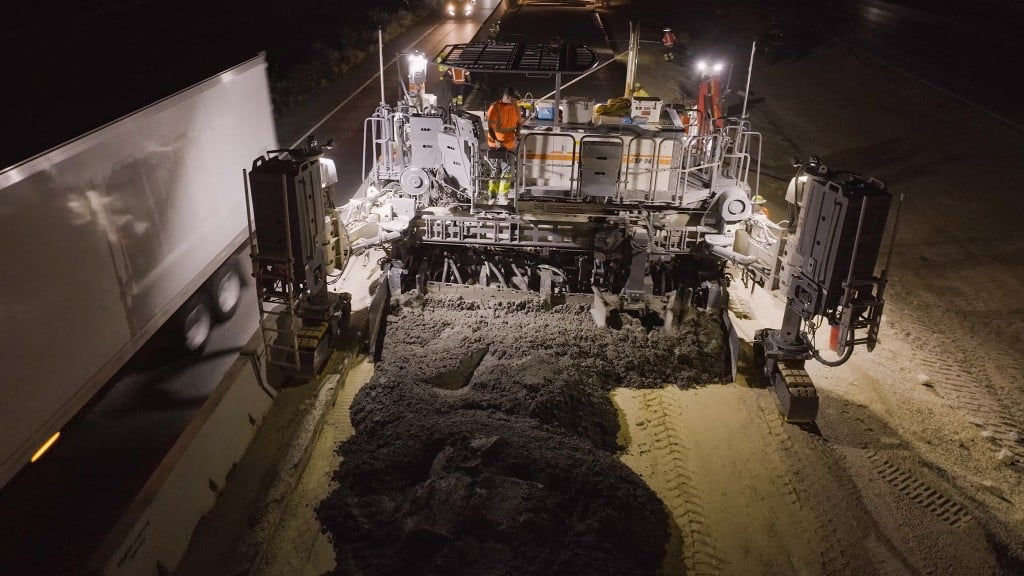
Ammann now has an asphalt mixing plant that not only utilizes recycled asphalt (RAP) but also incorporates consumer waste, such as glass bottles, tires and fly ash. The result is a mix comprised of 99 percent recycled materials – or put another way, a mix that uses only one percent virgin materials.
The family-owned, Swiss-based company has a history of recycling breakthroughs. In 2007, they created a plant that could utilize 100 percent RAP. Ammann has continued the emphasis on recycling and has moved from RAP to liquid asphalt cement (AC) and other materials that constitute the mix. Their recycling accomplishments were highlighted when Ammann partnered with a key customer, Downer, in Australia.
Dante Cremasco from Downer said: “It was the first time a mix has been manufactured with such a large amount of recycled consumer goods. The higher than normal recycled content percentage was achieved using post-consumable waste materials that would typically be stockpiled, sent to landfills or burned.”
The end product is also worth noting. “The mix itself actually performs better than a straight mix,” Cremasco said.
Downer offers one of the largest non-government owned road infrastructure services businesses in Australia and New Zealand, maintaining more than 40,000 kilometres of road in Australia and more than 32,000 kilometres in New Zealand. Downer continuously invests in state-of-the-art technology – such as asphalt plants that use more recycled products and substantially less energy – to ensure they remain at the forefront of the industry.
An Ammann Universal HRT (High Recycling Technology) plant with an extra-long 14-metre RAH-60 drum manufactured the mix. The plant utilizes two heating drums (one for virgin material and another for RAP). Existing Ammann plants – and some developed by other manufacturers – can be retrofitted to have the same recycling capabilities.
“If we can show that producing a 99-percent high quality renewable asphalt is possible, then we should be able to routinely market 75 to 80 percent to our customers,” Cremasco said.
The mix was used as the surface layer on a two-way access road. “Importantly this mix is exposed to the harsh Australian elements daily, not buried deep in the pavement like a traditional high-recycled content product,” Cremasco said.
Recycled consumer goods incorporated in the mix included crumbed tires and crushed glass, which essentially replaced sand. RAP accounted for about 75 percent of the mix. The only non-renewable material in the mix was one percent binder.
Improved asphalt quality
Research conducted by Downer shows the use of the recyclables improved the asphalt quality. Downer reported:
• A 30-percent improvement in deformation resistance, increasing product ability to resist damage from heavy traffic.
• A 16-percent increase in stiffness, which improves bearing capacity to carry heavy traffic. This also means a thinner surface can be placed, further reducing emissions.
• Improved durability and resistance to fatigue cracking due to innovative product design.
Cremasco said the paving crew that worked with the mix found it to be trouble-free, and no extra measures were needed. “It’s easy for crews to place,” he said. “The mix itself had a good matrix about it.”
While the company describes its Bayswater facility as one of the most advanced of its kind in the world, no special adjustments were made to the Ammann Universal HRT plant. Keys to the process are the plant’s RAP silos, located directly above the pugmill, and the twin-drum, parallel RAP drive. The plant also is built to introduce recyclables beyond RAP, Cremasco said.
Downer purchased the Ammann Universal HRT about three years ago because of its fuel efficiency and ability to use 80 percent RAP. Ammann worked closely with the Downer team to help make the mix a reality
Reducing cost
The value of this mix goes beyond environmental benefit. “Cost is another driver,” said Cremasco. “We have an internal target to reduce cost. When we eventually get into full production mode, those savings will be passed onto the consumer.”
That will be significant given Downer’s size. The company manufactures about 2.5 million tonnes of asphalt per year at its approximately 30 plants.
“These days, there are ever-increasing spending constraints from government authorities while consumer expectations are always rising,” Cremasco said. “This mix improves performance, reduces costs and preserves raw materials. It meets the needs of the government and the public.”
Paul Vandersluis, Managing Director, Ammann Australia, said that the recycled consumer goods are easy to access. “We only consider using them if there is sufficient access and a good supply of the products, and of course if it’s environmentally sustainable and has a cost benefit to the business.”
Most governmental agencies around the world would welcome a way to re-use tires, as there is a great need to keep them from landfills. However, the cost to crumb the rubber is expensive. “There are trials that say rubber helps with road noise, so this recycled product is more driven by authorities, rather than the producer, as it’s more expensive,” Vandersluis said.
Many other materials such as glass and fly ash are available, inexpensive and integrate well into the mix.
Fuel and recycled engine oils can be used and acquiring them is very inexpensive – but they must undergo special processing.
What is put into the mix must be of high quality, even if it was once waste. “Regardless of what type of recycled product is being considered, it must be well processed and treated like a new material,” Vandersluis said.
Company info
1125 SW 101St Road
Davie, FL
US, 33324
Website:
ammann-group.com/en/home
Phone number:
954-493-0010



